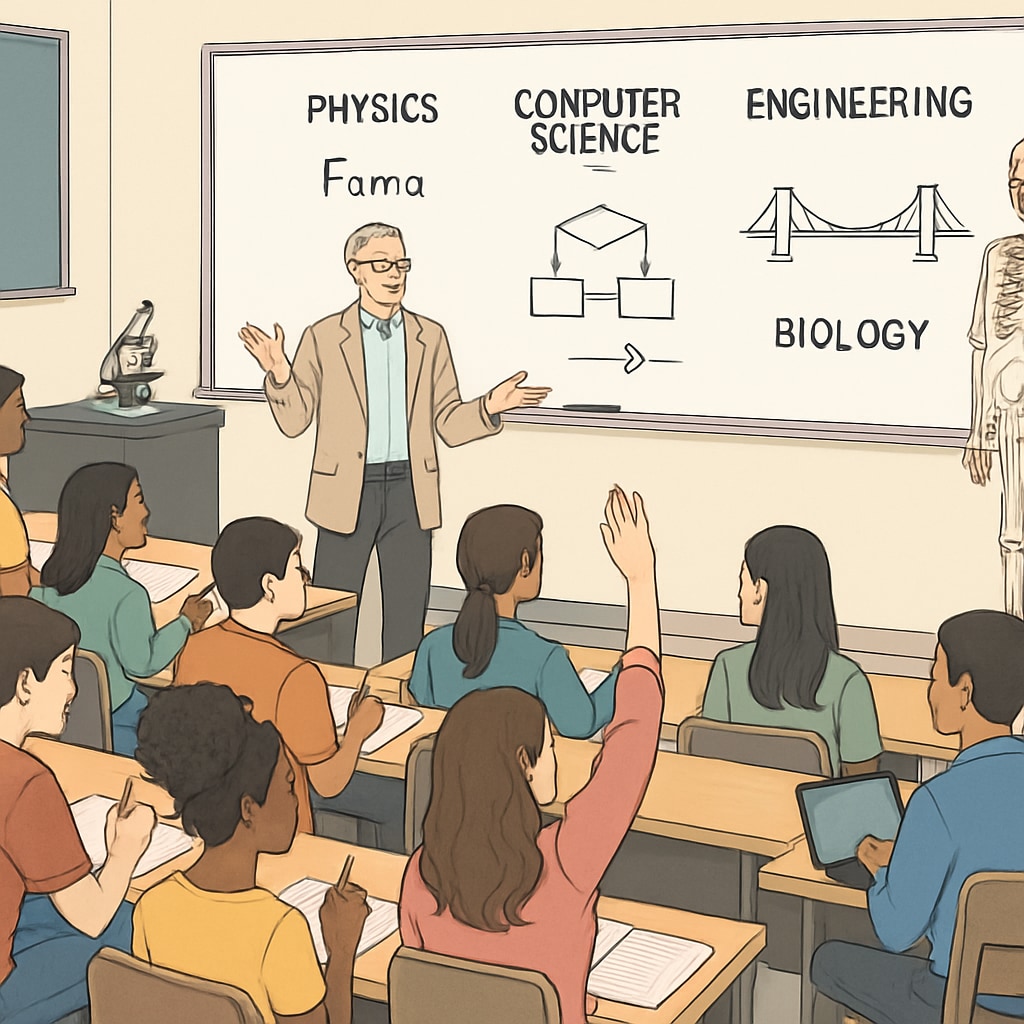For high school students passionate about math and science, choosing a college major can feel overwhelming—especially if their career interests remain undefined. The decision combines self-reflection, research, and future planning, but it doesn’t need to be paralyzing. By applying a structured approach, students can make informed choices that align with their strengths and passions while keeping doors open for future exploration. This article will guide students through the process of selecting a major, offering practical advice for those with a love for mathematics and scientific inquiry.
Identifying Strengths and Passions in Math and Science
Before diving into specific college majors, it’s essential to evaluate your strengths and interests within math and science. Are you drawn to theoretical concepts, such as algebra, calculus, or physics? Or do you enjoy practical problem-solving, like designing experiments or coding? Understanding these preferences will help narrow down potential fields of study.
- Conduct a self-assessment: Reflect on the math and science subjects where you excel and those you enjoy the most.
- Speak with teachers or mentors: Their insights can help you identify your unique talents and areas of growth.
- Explore extracurricular activities: Participate in science fairs, math competitions, or robotics clubs to gain hands-on experience.

For instance, if you find joy in solving complex equations, you might lean toward majors like mathematics, engineering, or economics. Alternatively, if you enjoy conducting experiments, biology, chemistry, or environmental science may be better suited to your skills.
Exploring Career Paths for Math and Science Enthusiasts
Even without a clear career goal, it’s helpful to research how math and science majors translate into real-world professions. This not only provides inspiration but also ensures your chosen major aligns with potential job markets. Here are some fields to consider:
- Data Science and Analytics: Ideal for students who love statistics and computational analysis.
- Engineering: A broad field that includes civil, mechanical, electrical, and aerospace disciplines.
- Healthcare and Medicine: Perfect for those intrigued by biology, chemistry, or human anatomy.
- Environmental Science: Great for individuals passionate about sustainability and conservation.
- Technology: Computer science and software engineering offer endless opportunities in coding and AI development.
Websites like Britannica’s Engineering Overview provide an excellent starting point for researching specific fields. Additionally, speaking with professionals or attending career fairs can offer valuable insights into various industries.
Practical Tips for Choosing a Flexible Major
If you remain unsure about your exact career path, select a major that offers flexibility and transferable skills. Some majors, like mathematics or physics, allow students to pivot into diverse industries, including finance, technology, and education. Here are some additional tips:
- Consider interdisciplinary programs: Many universities offer majors like computational biology or environmental engineering, which combine multiple fields.
- Look for broad introductory courses: Enrolling in general STEM programs during your first year can help clarify your interests.
- Evaluate double-major or minor options: Pairing a STEM major with a complementary subject, such as business or communications, can expand career opportunities.
Additionally, review each program’s curriculum and ensure it includes courses that excite you. University websites often provide detailed syllabi, allowing you to assess whether the material aligns with your interests.

Leveraging University Resources During the Application Process
When selecting a university, consider its resources for undecided students. Many institutions offer academic advising, career services, and exploratory programs designed to help students refine their interests. For example, some universities allow students to declare their major in the second year, giving them time to explore various disciplines.
In addition, use application essays to showcase your enthusiasm for math and science. Even if you haven’t settled on a specific major, your passion for problem-solving and innovative thinking will resonate with admissions committees. Highlight any relevant projects, competitions, or volunteer experiences that demonstrate your commitment to STEM fields.
Final Thoughts: Embracing Uncertainty and Growth
Choosing a college major is an important step, but it’s not a lifelong commitment. Many students change their majors during their undergraduate years as they gain new perspectives and experiences. By focusing on your strengths in math and science, exploring potential career paths, and selecting flexible programs, you can confidently navigate this decision.
Remember, the goal is not to have every detail of your future mapped out but to take the first step in a direction that excites and challenges you. As Albert Einstein once said, “Learning is experience. Everything else is just information.” So embrace the journey, and trust that your passion for math and science will guide you toward success.


